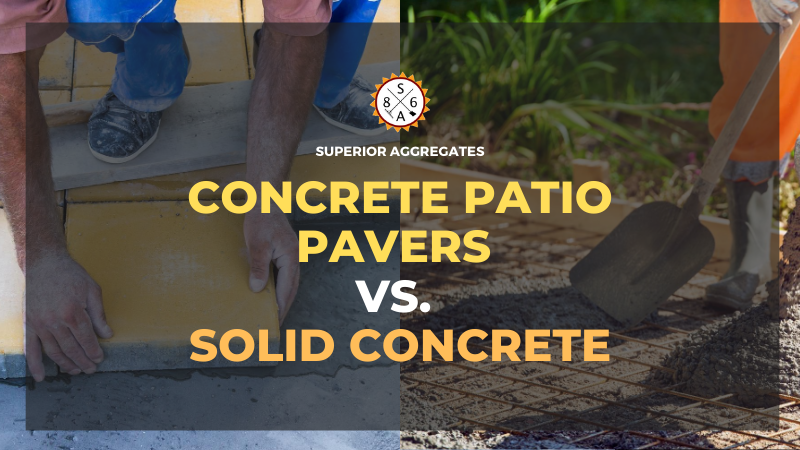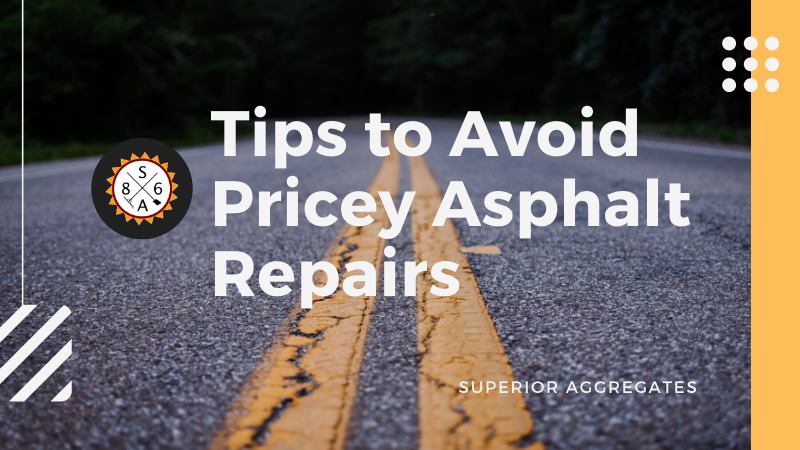
The Differences Between Summer Asphalt and Winter Asphalt: Need To Knows
To the average person, and they look like pretty much all asphalt the same. After all, asphalt looks like a hard, black substance that is made from small rocks that have been stuck together using tar. At the same time, experts in the industry understand that asphalt comes in many shapes and forms. In order for people to find the right asphalt to meet their needs, they need to understand the differences between the types of asphalt. One of the biggest differences between different types of asphalt and all the time of year during which it is used. Two of the most popular types of asphalt are summer asphalt and winter asphalt. Those who are looking to get the most out of their asphalt need to trust an asphalt company to explain the differences to them.
An Overview of Summer Asphalt
First, it is important to highlight the summer asphalt. Usually, summer asphalt is available between April and December. In some places, this is also referred to as hot asphalt. This type of asphalt is used to pave certain areas such as long driveways, roads, and parking lots. Usually, this type of asphalt is next at around three hundred degrees Fahrenheit. It is also made during the summer, thus the name.
Hot asphalt has to remain at this temperature and has to be applied quickly after it is mixed. If this asphalt cools, it can be harder to lay. If this asphalt does end up cooling, it can be reheated; however, this will also impact its quality. Because this type of asphalt has to be applied on the ground that is both dry and warm, this is the most common type of asphalt available during the summer.
An Overview of Winter Asphalt
Next, it is important to talk about winter asphalt. Because most asphalt is laid during the summer, winter asphalt is usually reserved for patching repairs. Winter asphalt can be used to tackle situations involving potholes, cracks, and other common problems. When this type of asphalt is poured on the cooler ground that is present during the winter, it usually takes longer to cure. As a result, smaller batches are better. This is our winter asphalt can help.
Winter asphalt is usually available between the months of January and March. Furthermore, this type of asphalt does not need to be reheated constantly. Often, this makes it easier to use. Furthermore, winter asphalt can also be stored and used later if there are other patching issues that arise. As a result, winter asphalt has a wide array of applications; however, it is usually not used to pave large parking lots and long roads.
Trust the Expertise of an Experienced Asphalt Company
This is a brief overview of the similarities and differences between two common types of asphalt. If you have asphalt needs, then you need to make sure that you rely on the right type to help you with your issues. This is where the guidance of an experienced asphalt company can help. When you rely on a helpful asphalt company, you can rest easy knowing that you are going to end up with a high-quality product that has been built to last. Make sure that your asphalt is both durable and reliable.
To the average person, and they look like pretty much all asphalt the same. After all, asphalt looks like a hard, black substance that is made from small rocks that have been stuck together using tar. At the same time, experts in the industry understand that asphalt comes in many shapes and forms. In order for people to find the right asphalt to meet their needs, they need to understand the differences between the types of asphalt. One of the biggest differences between different types of asphalt and all the time of year during which it is used. Two of the most popular types of asphalt are summer asphalt and winter asphalt. Those who are looking to get the most out of their asphalt need to trust an asphalt company to explain the differences to them.
An Overview of Summer Asphalt
First, it is important to highlight the summer asphalt. Usually, summer asphalt is available between April and December. In some places, this is also referred to as hot asphalt. This type of asphalt is used to pave certain areas such as long driveways, roads, and parking lots. Usually, this type of asphalt is next at around three hundred degrees Fahrenheit. It is also made during the summer, thus the name.
Hot asphalt has to remain at this temperature and has to be applied quickly after it is mixed. If this asphalt cools, it can be harder to lay. If this asphalt does end up cooling, it can be reheated; however, this will also impact its quality. Because this type of asphalt has to be applied on the ground that is both dry and warm, this is the most common type of asphalt available during the summer.
An Overview of Winter Asphalt
Next, it is important to talk about winter asphalt. Because most asphalt is laid during the summer, winter asphalt is usually reserved for patching repairs. Winter asphalt can be used to tackle situations involving potholes, cracks, and other common problems. When this type of asphalt is poured on the cooler ground that is present during the winter, it usually takes longer to cure. As a result, smaller batches are better. This is our winter asphalt can help.
Winter asphalt is usually available between the months of January and March. Furthermore, this type of asphalt does not need to be reheated constantly. Often, this makes it easier to use. Furthermore, winter asphalt can also be stored and used later if there are other patching issues that arise. As a result, winter asphalt has a wide array of applications; however, it is usually not used to pave large parking lots and long roads.
Trust the Expertise of an Experienced Asphalt Company
This is a brief overview of the similarities and differences between two common types of asphalt. If you have asphalt needs, then you need to make sure that you rely on the right type to help you with your issues. This is where the guidance of an experienced asphalt company can help. When you rely on a helpful asphalt company, you can rest easy knowing that you are going to end up with a high-quality product that has been built to last. Make sure that your asphalt is both durable and reliable.




